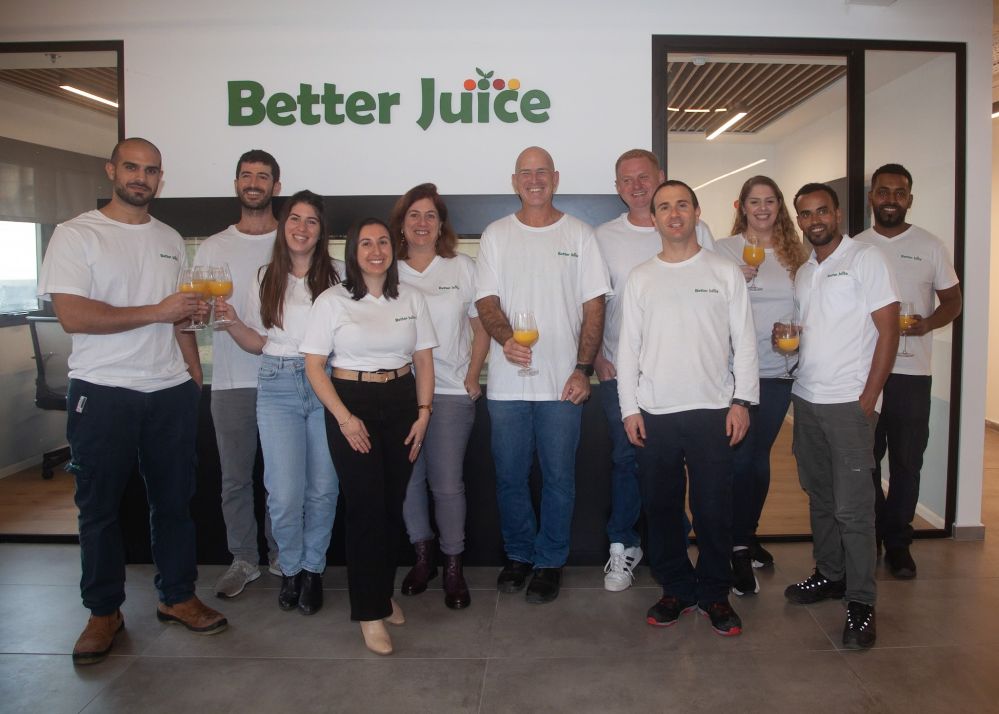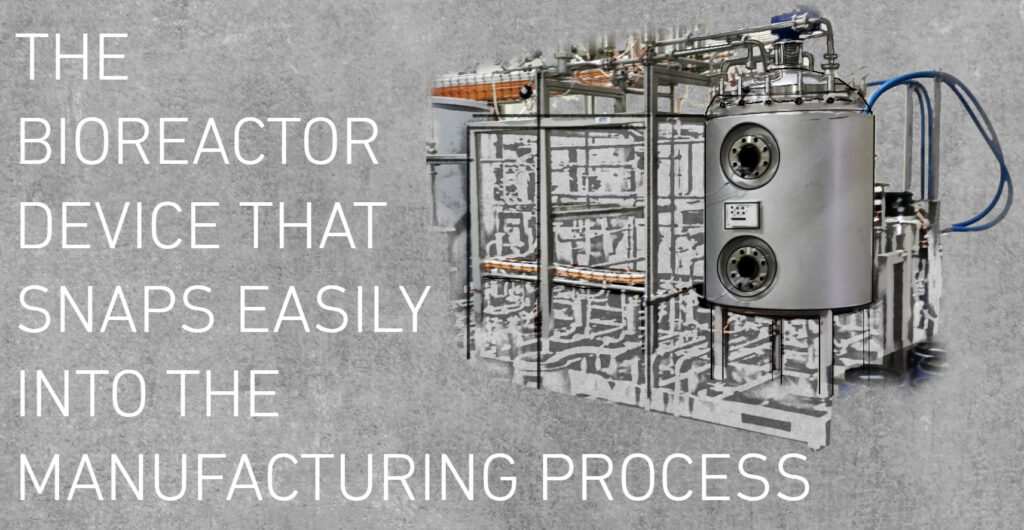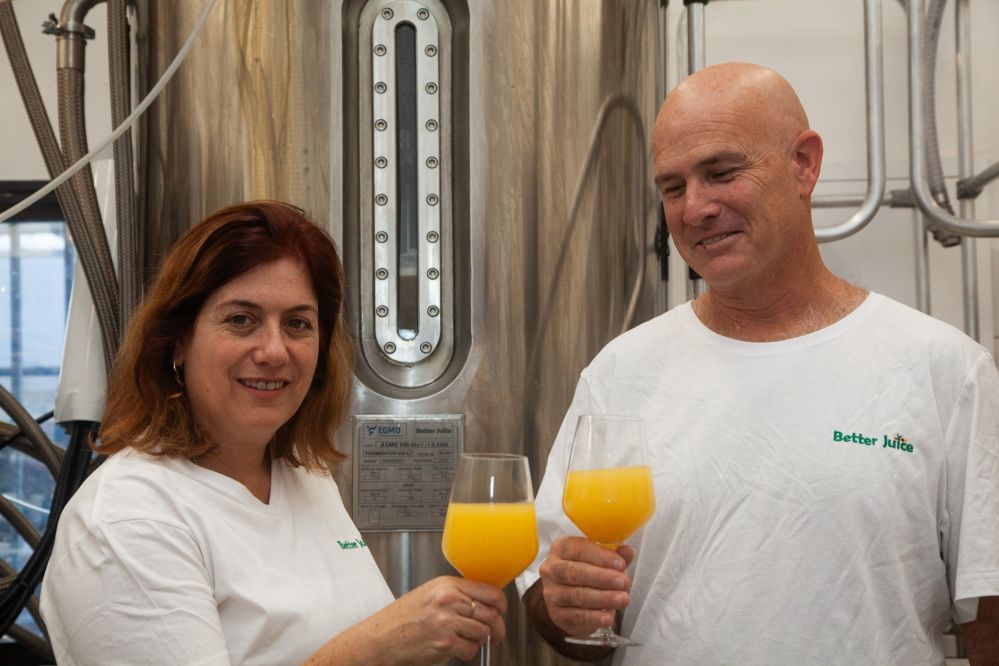Ingredion’s venture arm Ingredion Ventures has led a series A round at Better Juice, an Israeli startup behind enzymatic technology that converts up to 80% of the sugars in fruit juice into dietary fibers and non-digestible sugars without impacting the vitamins, minerals and organic acids in the final product.
Better Juice—which raised $8 million in seed funding prior to this round—has not disclosed the size of the series A, but said the capital injection from Ingredion, a global ingredients giant specializing in sugar reduction solutions, “will allow us to extend the technology to other liquids with natural sources of sugar, such as milk, beer, and wine.”
Cofounder and CEO Dr. Eran Blachinsky told AgFunderNews: “A commercial unit [featuring Better Juice’s tech] has been installed in a facility in the US. This is a B2B company that is introducing sugar-reduced products to its customers as we speak. We estimate a public launch this year.”
Asked about the relationship with Ingredion, he said: “The collaboration is in its preliminary stage. We know that Ingredion will offer our sugar reduction solution to its customers globally.”
“This technology adds a completely new dimension to our portfolio of sugar reduction solutions for food and beverage brands on a mission to meet increased consumer demand for less sugar. It also provides manufacturers with more options to successfully reduce sugar without compromising on great taste or nutrition.” Nate Yates, VP, Ingredion’s global sugar reduction platform
How it works
Whole fruits are the healthiest option. However, for consumers that enjoy juice-based beverages, Better Juice’s technology both reduces the sugar content in juice—addressing a key consumer concern—and ups the fiber content, which is largely removed by the juicing process, says Better Juice.
According to the startup—founded by Dr. Eran Blachinsky and Gali Yarom in 2017 with backing from The Kitchen FoodTech Hub—the process only slightly moderates the sweetness of the juice or other sugary liquid and intensifies the fruit flavor.
“Better Juice has achieved important milestones in the past two years and has positioned itself as the leading company for reducing simple sugars from natural sources. The timing is perfect for serving the rapidly expanding trend of consumers striving to cut down on simple sugars in their diet.” Amir Zaidman, VP, The Kitchen FoodTech Hub
Continuous process
Better Juice’s clean-label conversion process involves continuously flowing juice, juice concentrates, purees, juice-based beverages or other sugary liquids through a bioreactor (‘converter skid’) that can be inserted into a juice production line.
The bioreactor contains immobilized beads of non-GMO microorganisms that produce enzymes. When sugary liquids pass through the beads, the enzymes convert sucrose to dietary fibers such as Fructooligosaccharides (FOS), glucose to gluconic acid, and fructose into sorbitol, enabling sugar reductions of 30-80%, said Dr. Blachinsky.
“The converter skid is a smart vessel that holds the immobilized enzymes and enables the juice to flow through at a defined flow rate, which in turn dictates the sugar reduction level. The faster the flow the less time the enzymes have to convert the sugars, hence lower sugar reduction and vice versa.”
As the sorbitol (a sugar alcohol/polyol) is not added, it does not have to be listed on product labels, said Dr. Blachinsky. “As this it is a biological conversion you don’t need to mention sorbitol as an addition to the ingredient list.” While products containing large amounts of polyols require laxative effect warning labels in the US, the bioconversion process only produces small amounts that would not trigger these warnings, he said.
The final product retains its texture and most of its sweetness. However, it does not contain the microorganisms, says the firm, which is using tech developed by its scientific advisor Dr. Roni Shapira and cofounder Dr. Eran Blachinsky based on Dr. Shapira’s research at Hebrew University of Jerusalem in Israel.
Asked whether juice that has undergone such an enzymatic transformation can still be described as ‘juice’ on product labels, Dr. Blachinsky said: “In the US as well as many countries in Latin America and Australia, you can label it as a sugar reduced juice; in Europe it is a ‘fruit drink,’ containing 100% fruit or ‘fruit only,’ but this could change.”

Capacity to process 250 million liters of juice per year
In recent years, Better Juice has demonstrated its full proof of concept in collaboration with juice manufacturers in the US and Asia, following a partnership with engineering firm GEA, which installs the equipment at customers’ facilities.
“We are now fully prepped for market entry, with a capacity to process 250 million liters of sugar reduced juice per year,” said Blachinsky.
The business model is “very simple,” he said. “The immobilized enzyme has an activity life of two months. The customer buys the amount of beads he needs for two months and then make a new order for the next two months. It is like a Nespresso machine with capsules.”
The company has not released a list of investors for the series A round but said “most of the investors who participated in the seed round [The Kitchen FoodTech Hub, iAngels, Maverick Ventures Israel, NEOME–Women’s Investing Club, Semillero Partners LLC, theFoodTechLab and S. Schestowitz] will also join round A. These include Emil Capital Partners.”






